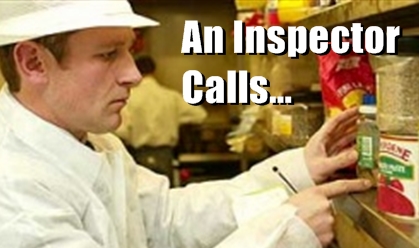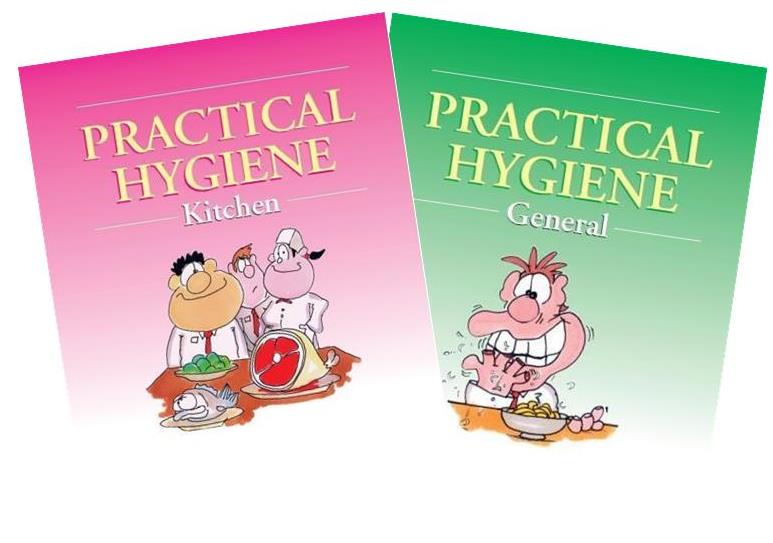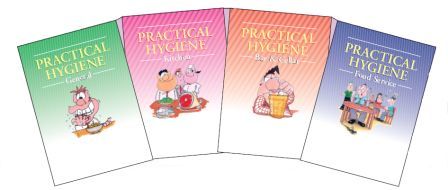If you run a pub, then the likelihood is your premises will be inspected by an Environmental Health Officer (EHO) at some point, this guide from Sentient, helps explain what you can expect and how you should prepare for an inspection visit.
The Law
There is a mass of laws, regulations and codes of practise which apply to companies involved in the production and serving of foods. For example the Food Safety Act 1990 provides a framework for all food safety legislation, while EC legislation The General Food Law Regulation aims to protect human health and consumers interests in relation to food across the EU. The General Food Regulations 2004 details how previous laws are to be enforced and where penalties may be imposed for organisations that break the rules.
The Laws are relevant to many aspects of a food business operation and cover areas such as hygiene and safety, labelling, advertising and presentation, keeping records and traceability. Penalties for the breaches of the Law can result in:
- Up to 2 year imprisonment and/or an unlimited fine on conviction in a Crown Court
- Up to 6 months imprisonment and/or £20,000 fine on conviction in a Magistrates Court
Any business which makes, prepares or sells food can expect a visit from an Authorised Enforcement Officer or EHO from its local authority to make sure they are following food law.
Frequency of inspections varies depending on the nature of the business and what the inspector found last time. Those establishments with good records will generally be inspected less frequently than those who have been found lacking. Routine inspections can vary from around 6 months to 3 years, although surprise inspections can happen at any time. Officers are obliged to investigate complaints from the public so one can never be off ones guard. Officers can visit your premises unannounced during opening hours. In this respect they effectively have more powers than Police, furthermore, it is a criminal offence to obstruct an authorised Officer in the course of their duty.
What to expect from an Enforcement Officer inspection
The primary function of an inspection is to check that the food your business produces is safe to eat. An inspector will look at the way you operate your business; whether it is suitable for the safe preparation of food, what potential hazards might be present and generally make sure that you are complying with the law.
The Officer will also directly question your staff, who may be quizzed about your quality control systems and practices, staff training, controlling hazards and temperature control. They may also request relevant documentation including maintenance and production records, temperature records, cleaning records, food safety management systems, training records and so on.
You should also ensure you are keeping records, for traceability purposes, of food which has been received by your business, and if you are supplying other businesses, of food which you have sold. The Officers will also look at how you describe food, for example on a menu or label, to make sure the description is accurate and not misleading for customers.
What is the inspection process?
Any inspection visit should follow the Food Standards Agency’s Framework Agreement on local authority food law enforcement, and the Food Law Code of Practice. The Framework Agreement, sets out how local authorities carry out their enforcement duties and the standards they should comply with.
You can expect the Officers to show you their identification when they arrive and they should always give you feedback on an inspection. This means they will tell you about any problems they have identified and advise you about how they can be avoided. If Officers advise you to do something, they must tell you whether you need to do it because it is good practice, or whether it must be done to comply with the law.
If you are asked to take any action as a result of the inspection, this will be confirmed in writing. The Officers should give you a reasonable amount of time to make changes, except where there is an immediate risk to public health. They must also tell you how you can appeal against their actions.
What enforcement powers do Officers have?
Officers have a range of powers. They are able to inspect your records, seize food and take samples for analysis. Where there is an imminent risk to health, for example through pest infestation they can order the closure of the business. For the most serious cases they can recommend criminal prosecutions. They are also able to formally exclude an employee from working in a food business if they are found to be suffering with a food-borne illness or infectious disease.
Officers can write asking the business owner to put right any problems they find. If more serious breaches of the law are identified, which must be put right, they may serve an Improvement Notice. It is an offence not to comply with these notices.
If the Officer recommends a prosecution which is then successful, the Court may impose fines, prohibit someone from running a food business and possibly a prison sentence.
What should I do if I receive an Improvement Notice?
Firstly have it checked out. If they are badly prepared there may be technical reasons why they cannot later be relied on in court. If you believe the notice is inaccurate, invalid or not enforceable you can appeal it – but you only have 21 days to do this. You make the appeal to the Courts and we strongly advise that you take advice from a suitably qualified and experienced compliance defence lawyer. Interestingly, if the Improvement Notice is of a health and safety nature, then the route for appeal is through the Employment Tribunal Service. (Yes we know it seems crazy!) Contact Sentient for assistance here.
Remember, that to just comply with the Improvement Notice is the equivalent of admitting you are at fault. i.e. if later prosecuted, you would be effectively admitting guilt before you even step into court.
If the notice cannot be appealed and you are at fault, then you must take immediate steps to ensure that you comply with it, within the specified time period. If you do not comply then you may be prosecuted. If you cannot comply within the time period you should contact the Environmental Health Department immediately. It helps to let the Officer know of the progress that you are making to comply with the notice. Even if you comply you might still be prosecuted.
What action should I take to prepare for an inspection?
As with any bureaucratic process, keep on top of things all of the time. You are responsible for monitoring the hygiene and safety levels in all areas of your business all of the time and this should be a continual process.
One aspect, that is critical to ensuring an inspection runs smoothly, is making sure that all of your staff are appropriately trained in food hygiene, food processing and working methods. This should include temperature monitoring, separation of cooked and uncooked meats, cleaning methods, awareness of nuts and other allergenic products and complying with use-by dates. You should also ensure that your employees practice good hygiene by washing hands and wearing clean washable over-clothing and head covering where necessary, such as in kitchens and service counters. This training could take the form of a food safety course or it could be on-the-job. The level of training required depends on the type of work being done.
Managing a training program however can be difficult with a workforce that is likely to be mostly part–time, temporary and with a relatively high turnover. There are hundreds of food hygiene courses available through third parties, on site or off site. The difficulty with this approach however often lies with coordinating times to suit the business, employee and trainer. On line courses offer a part solution as they can be taken anytime. The proviso is that there is some online technology available for the pupil, which is not always the case. Also if the online training is done at home, how do you know who actually sits through the tests?
Reader Offer
Sentient have produced a Practical Hygiene Training program which provides basic food hygiene training and is perfect for the pub/catering trade. It consists of a General Practical Hygiene course workbook which is applicable for all employees, which is then followed by workbooks specific to individual job roles such as bar/cellar, kitchen and serving staff. The workbooks combine practical instructions with quizzes, tests and other activities to reinforce learning. It is written in a pragmatic easily understandable way with cartoons and diagrams that explain situations with both text and pictures in a humorous way.
Included in the pack are Course Tutor notes and booklets, tests and certificates. It gives you everything you need for staff to complete a basic food hygiene awareness course, plus provides you with the training records which may be required by an Authorised Enforcement Officer during an inspection.
How To Run A Pub readers receive a 10% discount on all prices. Please use discount code: HTRP10 when checking out. For more details please visit Sentient or call them on 08456 446006.
HR Services, Employment Law, Health and Safety, Food Hygiene and Training for business.
“Managing these areas is becoming more and more complex and at Sentient we understand how your business can be thrown into chaos by regulations. That’s why Sentient pride themselves on their ability to take good care of the legal side, leaving you free to run your business.
Most small organisations do not have the luxury of qualified in house HR services departments. However experience tells us that with the complexities of Employment Law and the ever increasing number of laws regarding Health and Safety and Food Hygiene, it is inevitable that there will be times where specialist knowledge is required. That’s where Sentient can help.”


